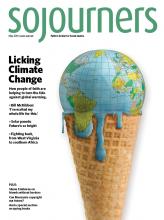GROWING UP IN the Catholic Church in Cuba, Romy Aranguiz learned to perform acts of charity on limited resources—and to carefully seek out dialogue when the laws of the land seemed to run contrary to her moral compass, or to the government's own professed ideals.
"For me, the church is the best representation of civil society in Cuba. It was probably the only institution that kept a certain distance from the government when there was hardly an opposition," she said in a recent phone interview from her home in Massachusetts.
Now a medical doctor in the U.S., Aranguiz continues to implement those lessons, these days through Cuban Americans for Engagement (CAFE), a movement aimed at broadening U.S.-Cuba relations through citizen exchange, open trade, and diplomatic cooperation.
Like most of CAFE's founding members, Aranguiz is a Cuban Gen Xer who obtained her education on the island and migrated to the U.S. as an adult. She developed a penchant for blogging while pursuing a professional career and obtaining U.S. citizenship.
CAFE's members are focused on breaking the silence they experienced in communist Cuba—and the silence they encountered as new immigrants to the U.S., where the Cuban-American agenda was often set by older exiles with no interest in a U.S.-Cuba dialogue.
"I think CAFE is having a positive impact on previous generations of Cuban Americans and Latinos in the U.S., descendants from first migratory waves," says CAFE board member María Isabel Alfonso, a professor at St. Joseph's College in New York. "CAFE has come to fill a void, as it values diplomacy and engagement over a confrontational, Cold War mentality."
Read the Full Article

